The coordination framework faces a decisive test… Who will lead the next phase?
 The Iraqi political scene is experiencing a political deadlock regarding the appointment of a prime minister, due to a lack of internal consensus among political forces, coupled with what some parties describe as external interference and pressure, particularly from the United States.
The Iraqi political scene is experiencing a political deadlock regarding the appointment of a prime minister, due to a lack of internal consensus among political forces, coupled with what some parties describe as external interference and pressure, particularly from the United States.
This debate comes at a time of escalating concerns about the repercussions of the continued political impasse on the country’s economic and security stability, amidst clear differences in the positions of political forces regarding the mechanisms for selecting the appropriate candidate to lead the next government.
Abdullah Hamed al-Khaigani, a member of parliament from the Badr Bloc, believes that resolving the prime ministership issue hinges primarily on internal understandings among the forces within the Coordination Framework, and not on external pressures or international stances. He emphasized that the final decision must reflect the Iraqi political will, free from any external influences.
Al-Khaigani explained that the Coordination Framework represents the largest political component in the parliamentary landscape, stressing that there is no complete internal political deadlock within its ranks. However, he also pointed to political conditions set by some parties, including the exclusion of current Prime Minister Mohammed Shia al-Sudani from the position should another candidate, such as Nouri al-Maliki, be agreed upon.
He also pointed to the circulation of other names within the political scene, such as Adel Abdul Mahdi, stressing that the final decision is still contingent on formulating comprehensive agreements within the Shiite political establishment first, before moving on to understandings with other political forces.
In a related context, Al-Khaigani emphasized that the controversy sparked by US President Donald Trump’s tweet has plunged the political scene into a spiral of political tension. He asserted that the selection of the prime minister must be a purely Iraqi decision, free from any external influences or political dictates, in accordance with what he described as the requirements of national sovereignty and the protection of Iraqi political decision-making from any international interference.
For his part, Aqeel Al-Rudaini, a member of the Victory Coalition, explained that the decision-making mechanisms within the coordination framework are based on the principle of complete consensus among its members, even if there are political objections to some of the proposed candidates for prime minister.
Al-Rudaini indicated that Nouri al-Maliki’s nomination came within this political context, but it did not receive widespread acceptance from all political forces. The majority of Sunni and Kurdish forces, along with some Shiite forces, expressed reservations about this nomination, reflecting the extent of the division within the Iraqi political landscape and the complexity of the consensus-building process among the various political components.
He emphasized that the Coordination Framework is not a formal constitutional institution, but it represents an influential political bloc within Parliament. He noted that some parties within the Framework are seeking a legal solution to the crisis that preserves political stability and prevents the country from entering into new governmental crises that could affect the state’s executive performance.
Al-Rudaini also called for a decisive session within the Coordination Framework to resolve the ongoing debate about the appropriate candidate, warning that the continued political deadlock could expose Iraq to serious repercussions, including the imposition of economic sanctions or even a potential military escalation in the region should political and diplomatic tensions with international powers intensify.
In the economic context, MP Saud Al-Saadi, from the Rights Bloc, warned that any potential US sanctions could directly affect the living conditions of citizens, particularly concerning government salaries and the ability to finance the state’s general budget.
Al-Saadi stressed that US control over Iraqi funds is internationally illegitimate, criticizing what he described as the approach of economic domination over Iraqi financial decision-making. He pointed out that the Iraqi economy remains almost entirely dependent on oil revenues, which makes the country vulnerable to external pressures during political and economic crises.
Al-Saadi called for diversifying the Iraqi economy and strengthening other productive sectors to bolster national decision-making independence and reduce reliance on oil resources. He argued that the current phase presents a political opportunity to enhance economic sovereignty and achieve greater financial stability, free from escalating international influences.
Observers note that the Iraqi political landscape suffers from a clear entanglement of internal and external factors, as political forces strive to strike a delicate balance between national interests and international pressures amidst regional and international competition for influence over Iraqi political decisions.
Analysts assert that the ongoing disputes within Iraq’s political factions could prolong the prime minister selection crisis, especially given the major political forces’ failure to finalize their stance on the most likely candidate. Political experts also warn that continued instability could negatively impact the investment climate and economic development, as well as weaken the government’s ability to implement its reform and service programs.
Political forecasts point to several possible scenarios. The first, and most stable, is an internal consensus, where the forces within the Coordination Framework agree with other political forces on a consensus candidate who enjoys broad national acceptance. The second scenario is a continuation of the political deadlock, which could lead to further delays in forming a government or altering the political balance within parliament. The third scenario involves escalating external pressures, which could affect Iraq’s diplomatic and economic relations and further complicate the political landscape in the coming period.
The issue of the Iraqi premiership remains one of the most complex at present, given the interplay of internal political calculations with regional and international pressures. With ongoing disagreements among political forces, attention is focused on the ability of the coordinating framework to reach an internal settlement that guarantees political stability and safeguards the interests of the Iraqi state in the face of escalating political, economic, and security challenges.
Almaalomah.me
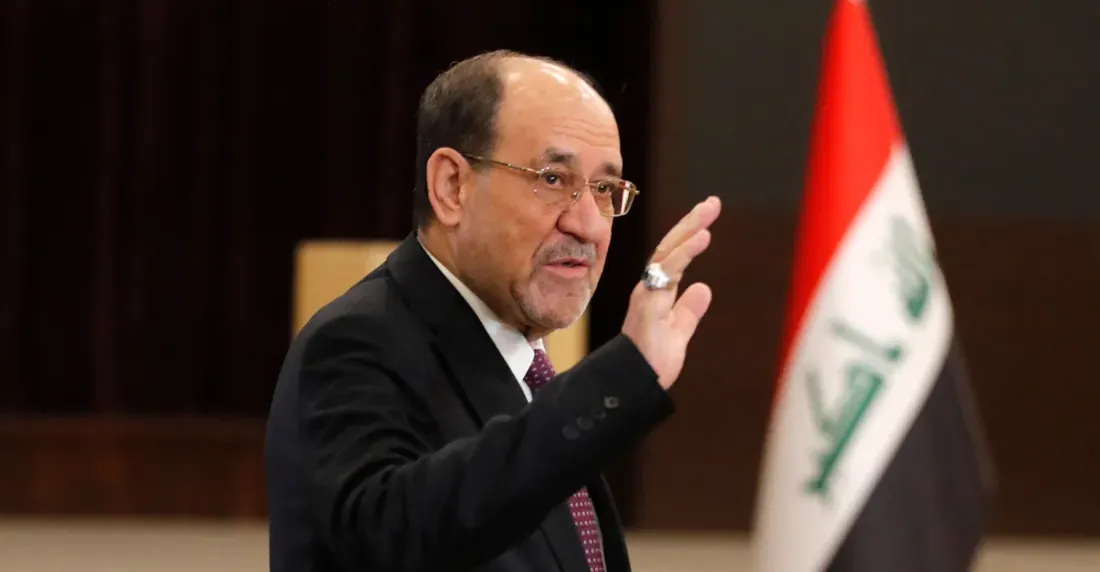

 The Iraqi political scene is experiencing a political deadlock regarding the appointment of a prime minister, due to a lack of internal consensus among political forces, coupled with what some parties describe as external interference and pressure, particularly from the United States.
The Iraqi political scene is experiencing a political deadlock regarding the appointment of a prime minister, due to a lack of internal consensus among political forces, coupled with what some parties describe as external interference and pressure, particularly from the United States.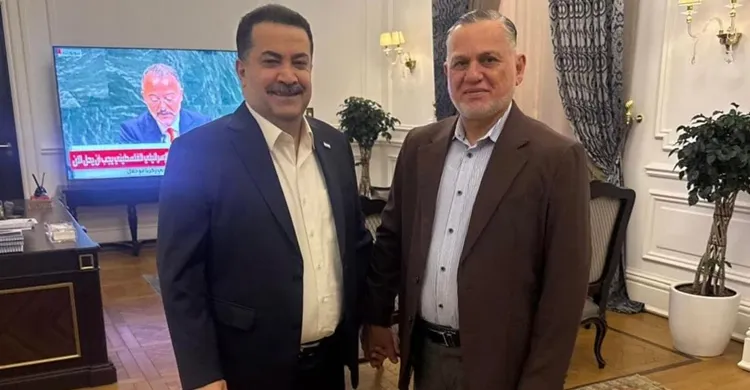 The head of the Reconstruction and Development bloc, Bahaa al-Araji, confirmed on Tuesday that the coordination framework “will not change its candidate for the next government due to an American decision,” stressing that the issue of the premiership is “a purely Iraqi matter.”
The head of the Reconstruction and Development bloc, Bahaa al-Araji, confirmed on Tuesday that the coordination framework “will not change its candidate for the next government due to an American decision,” stressing that the issue of the premiership is “a purely Iraqi matter.”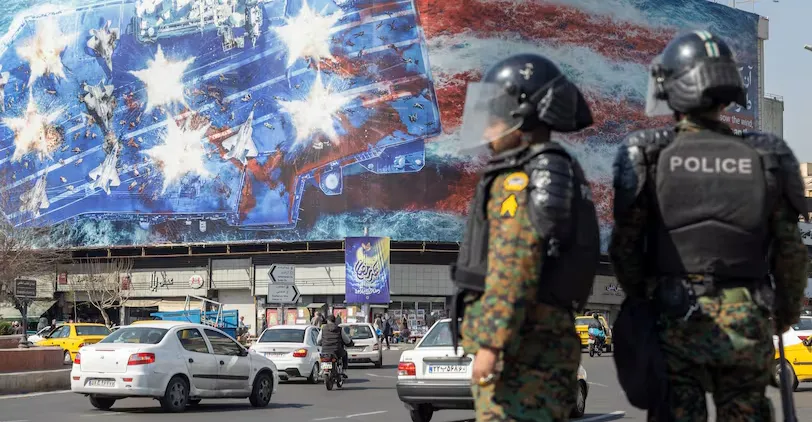 Analysts say that Tehran could become a “sinking ship” and be forced to loosen its grip on Iraqi politics, which is pushing pro-Iranian Iraqi leaders to distance themselves from it, especially given the weakness it suffers and the possibility that US President Donald Trump might resort to the option of war against it.
Analysts say that Tehran could become a “sinking ship” and be forced to loosen its grip on Iraqi politics, which is pushing pro-Iranian Iraqi leaders to distance themselves from it, especially given the weakness it suffers and the possibility that US President Donald Trump might resort to the option of war against it.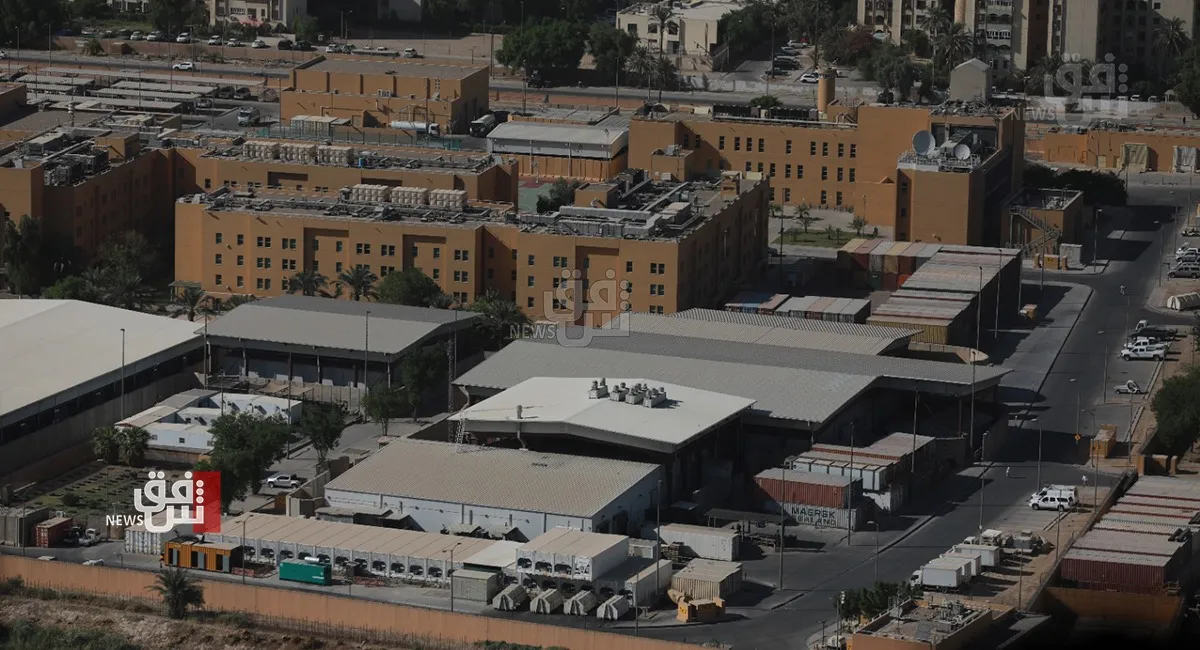 Two Iraqi and American officials said on Thursday that the United States has reduced the number of its diplomatic staff at its missions in Iraq and some Gulf states, taking precautionary measures against the backdrop of escalating regional tensions, without disclosing details about the size or nature of the reduction.
Two Iraqi and American officials said on Thursday that the United States has reduced the number of its diplomatic staff at its missions in Iraq and some Gulf states, taking precautionary measures against the backdrop of escalating regional tensions, without disclosing details about the size or nature of the reduction. The Trump administration is pressuring NATO to radically recalibrate its relationships and end its mission in Iraq, according to a report published Thursday by the American newspaper Politico. Four diplomats stated that Washington’s efforts, which also include reducing peacekeeping operations in Kosovo, are now being referred to internally as “returning to the status quo.”
The Trump administration is pressuring NATO to radically recalibrate its relationships and end its mission in Iraq, according to a report published Thursday by the American newspaper Politico. Four diplomats stated that Washington’s efforts, which also include reducing peacekeeping operations in Kosovo, are now being referred to internally as “returning to the status quo.”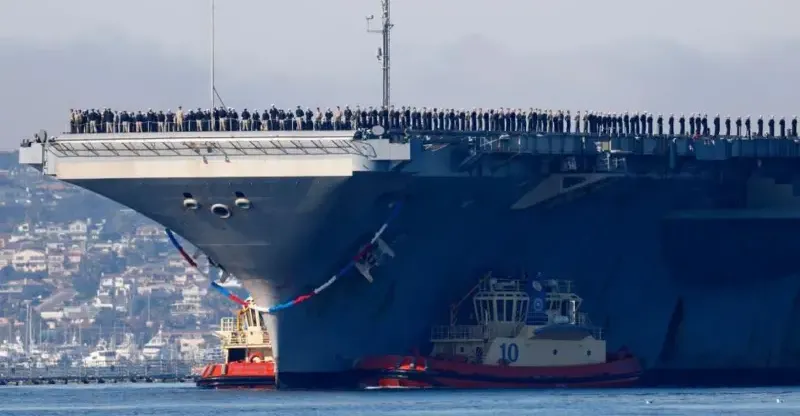 Senior national security officials have informed US President Donald Trump that the US military is ready to carry out possible strikes against Iran as early as Saturday, although the timeframe for any military action could extend beyond the weekend, according to CBS News on Thursday, citing sources familiar with the consultations.
Senior national security officials have informed US President Donald Trump that the US military is ready to carry out possible strikes against Iran as early as Saturday, although the timeframe for any military action could extend beyond the weekend, according to CBS News on Thursday, citing sources familiar with the consultations.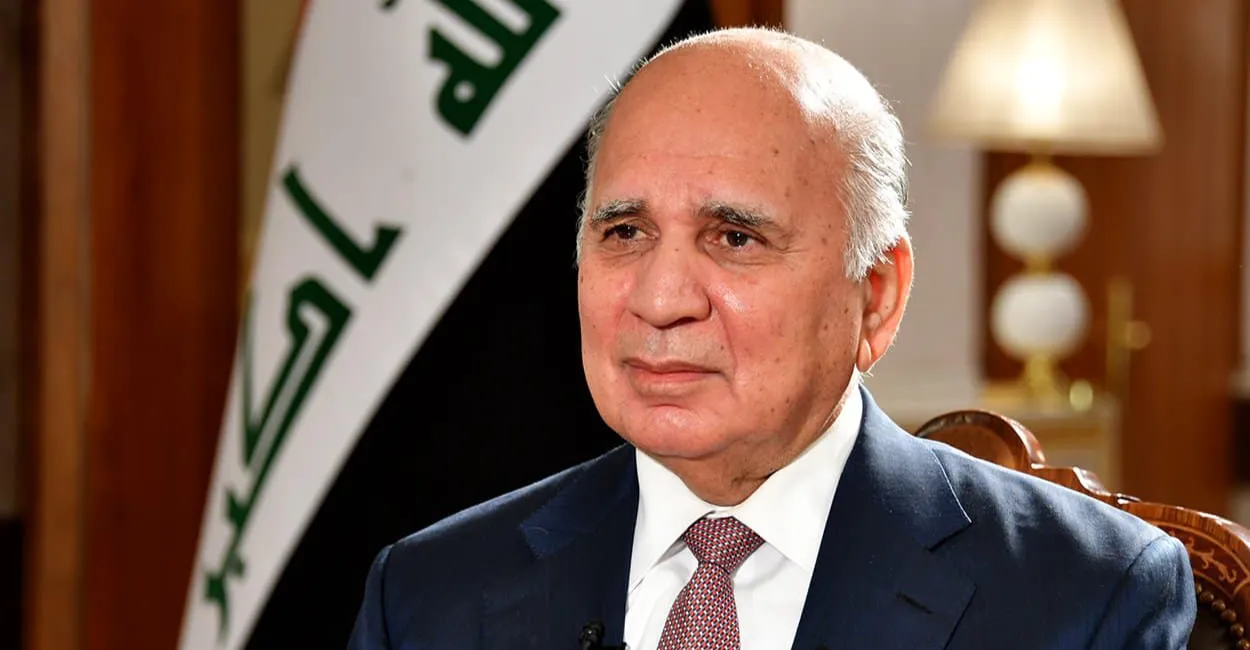 On Thursday, the Iraqi Ministry of Foreign Affairs issued a statement clarifying what was stated in a television interview with Deputy Prime Minister and Foreign Minister Fuad Hussein, confirming that an oral message received by Iraq from the American side in Washington included an allusion to the possibility of imposing sanctions, along with criteria related to the nature of cooperation and the formation of the next government.
On Thursday, the Iraqi Ministry of Foreign Affairs issued a statement clarifying what was stated in a television interview with Deputy Prime Minister and Foreign Minister Fuad Hussein, confirming that an oral message received by Iraq from the American side in Washington included an allusion to the possibility of imposing sanctions, along with criteria related to the nature of cooperation and the formation of the next government.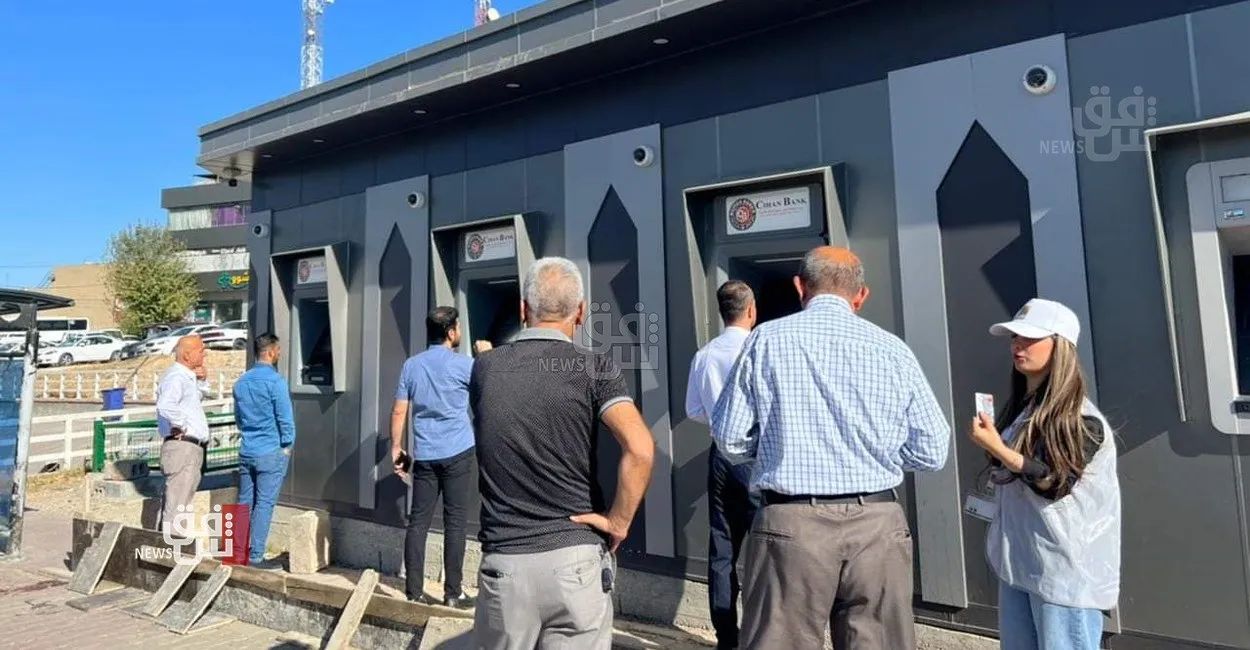 The Ministry of Finance and Economy in the Kurdistan Region stated on Thursday that the National Bank “Nishtiman Bank,” which is planned to be launched in the region, will provide loans and financial advances to employees and citizens, after completing the official approvals from the Central Bank of Iraq.
The Ministry of Finance and Economy in the Kurdistan Region stated on Thursday that the National Bank “Nishtiman Bank,” which is planned to be launched in the region, will provide loans and financial advances to employees and citizens, after completing the official approvals from the Central Bank of Iraq.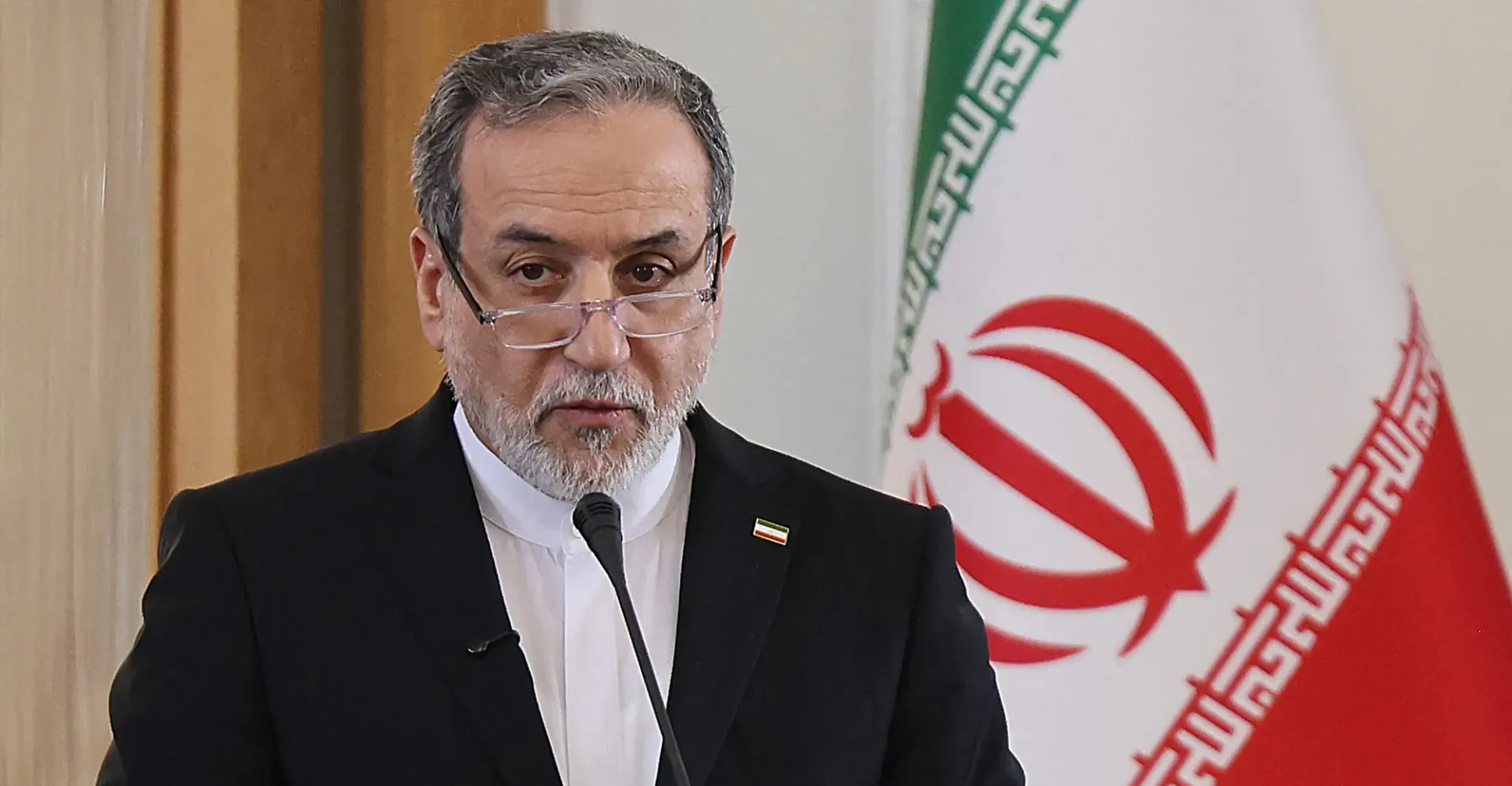 Iranian Foreign Minister Abbas Araqchi announced on Tuesday that an understanding had been reached with the United States on “main principles,” and indicated that work was underway on two versions of the potential agreement document for the two sides to exchange.
Iranian Foreign Minister Abbas Araqchi announced on Tuesday that an understanding had been reached with the United States on “main principles,” and indicated that work was underway on two versions of the potential agreement document for the two sides to exchange.